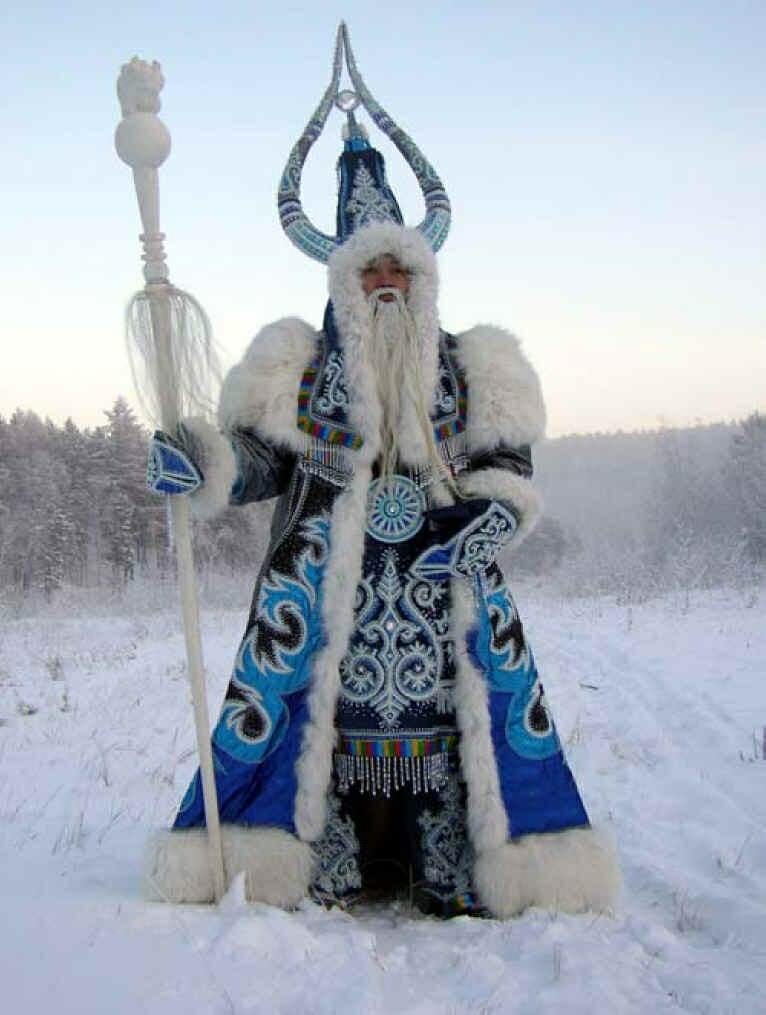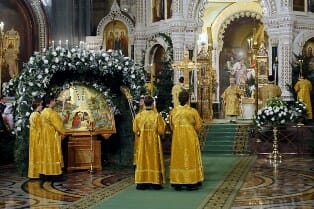 The Orthodox Christmas is celebrated on January 7th, nine months after the Annunciation to the Virgin Mary. This date corresponds to December 25 in the Julian calendar. The feast of Christmas is preceded by a period of fasting for 40 days, starting on November 27th.
The Orthodox Christmas is celebrated on January 7th, nine months after the Annunciation to the Virgin Mary. This date corresponds to December 25 in the Julian calendar. The feast of Christmas is preceded by a period of fasting for 40 days, starting on November 27th.
“For historical reasons – Sergei, an Orthodox focolarino from Moscow, tells us – after the revolution of 1917 and until the nineties, Christmas was no longer celebrated in Russia. In its place New Year celebrations were introduced, with the tree and Santa Claus, Ded Moroz in Russian, literally ‘Father Frost’.”
“I found out about Christmas and the whole ‘history of salvation’- continues Sergey – when I met the Focolare Movement. At that time I was not even baptized, so the meeting with the Focolare coincided, for me, with the encounter with God.”
According to custom, Christmas Eve is known by the name of “Sočelnik“, because of the food called sočivo, which consists of fruit and boiled corn, the only food allowed on that day. Fasting lasts until the evening, and is not broken until the Christmas hymn is sung. Then a candle is lit, symbolizing the star of Bethlehem, and this marks the end of the fast.”Despite these traditions, for many people in Russia – Sergei points out – Christmas still does not exist. Practically Jesus has been completely ‘exiled’ from their lives. Consumerism, so well known to the West, has also done its part, exploding with strength as soon as communism collapsed.”
 “That’s why we strive every day,” Sergey concludes, “so that as many people as possible can find this child, whose birth we celebrate these days. That they can see him ‘born among us’, through mutual love (Mt 18:20). My wish for this Christmas: that we Christians are capable of giving Jesus to the world, through our concrete evangelical love, and so bring him to everybody.
“That’s why we strive every day,” Sergey concludes, “so that as many people as possible can find this child, whose birth we celebrate these days. That they can see him ‘born among us’, through mutual love (Mt 18:20). My wish for this Christmas: that we Christians are capable of giving Jesus to the world, through our concrete evangelical love, and so bring him to everybody.
Merry Christmas! С РОЖДЕСТВОМ.
This is a greeting which we want to extend to our brothers and sisters of the Church in Serbia, the Coptic Church, the Church of Jerusalem, Macedonia, Ukraine, Georgia, and some Churches in Greece.”




0 Comments